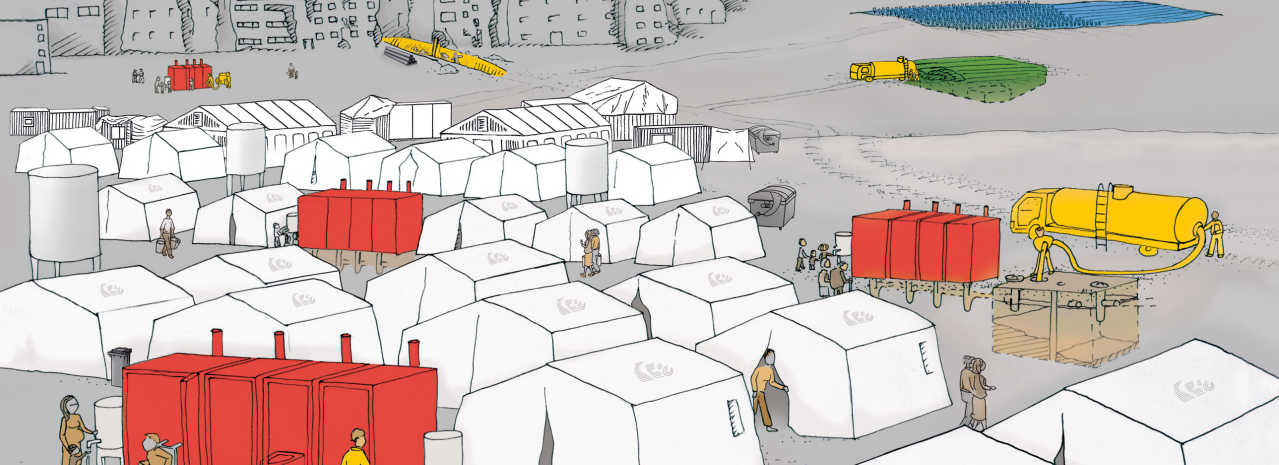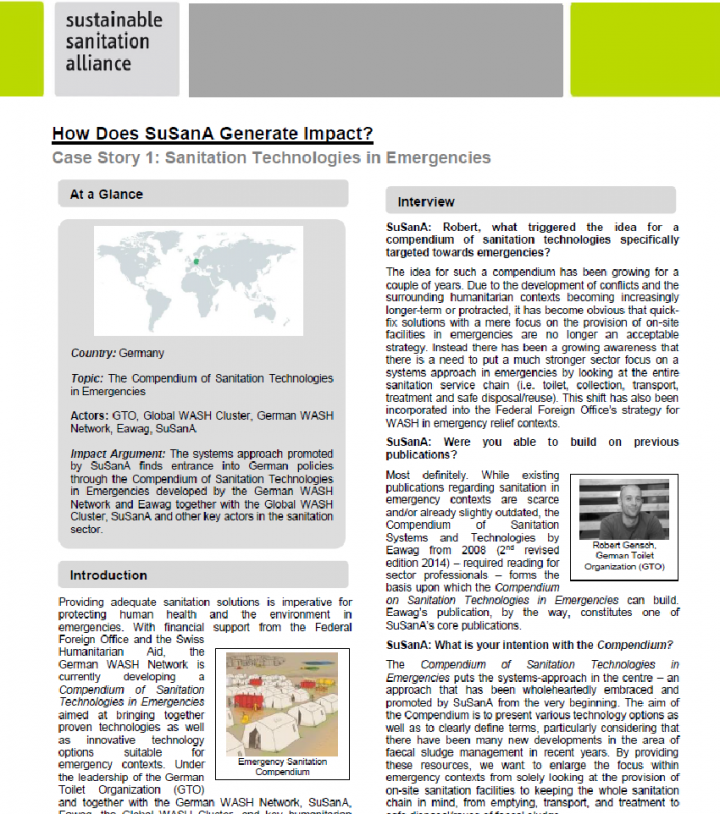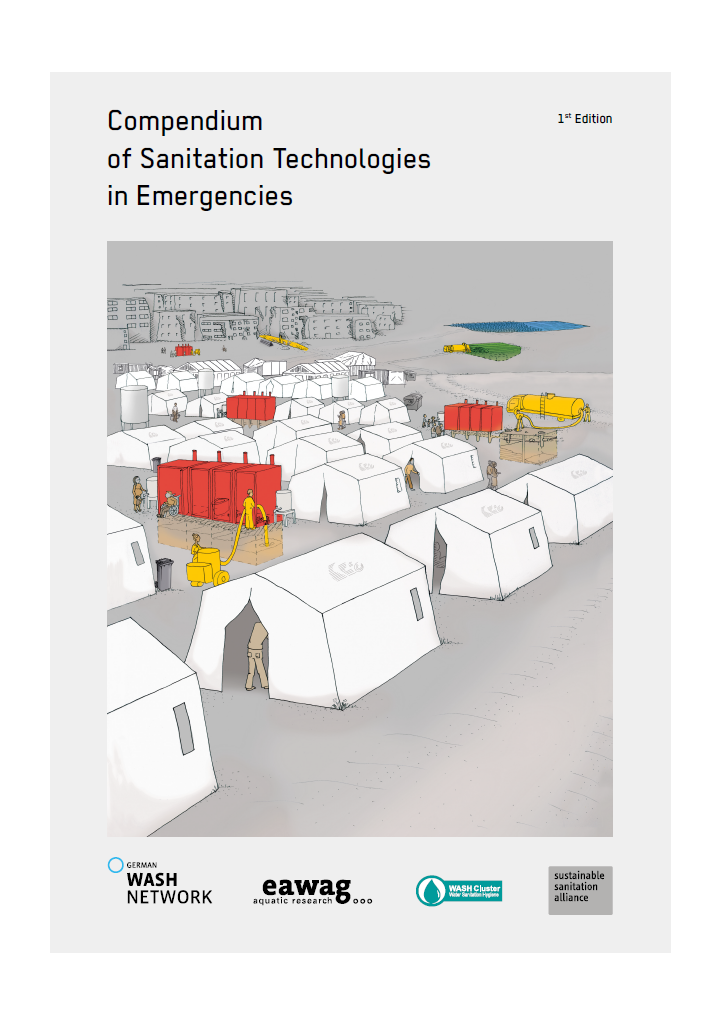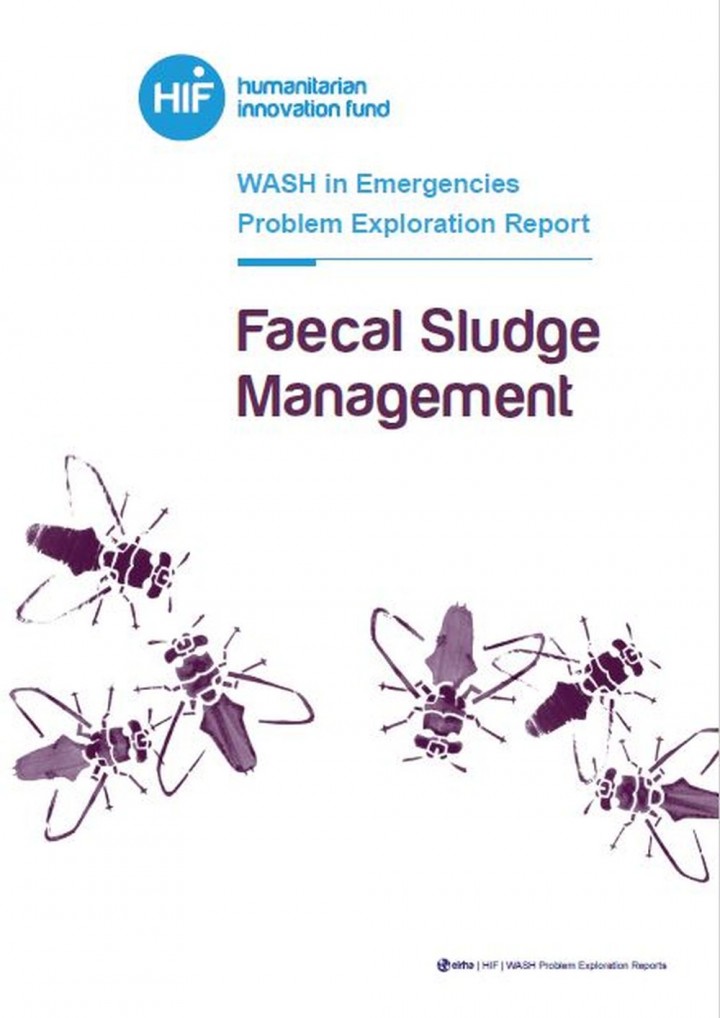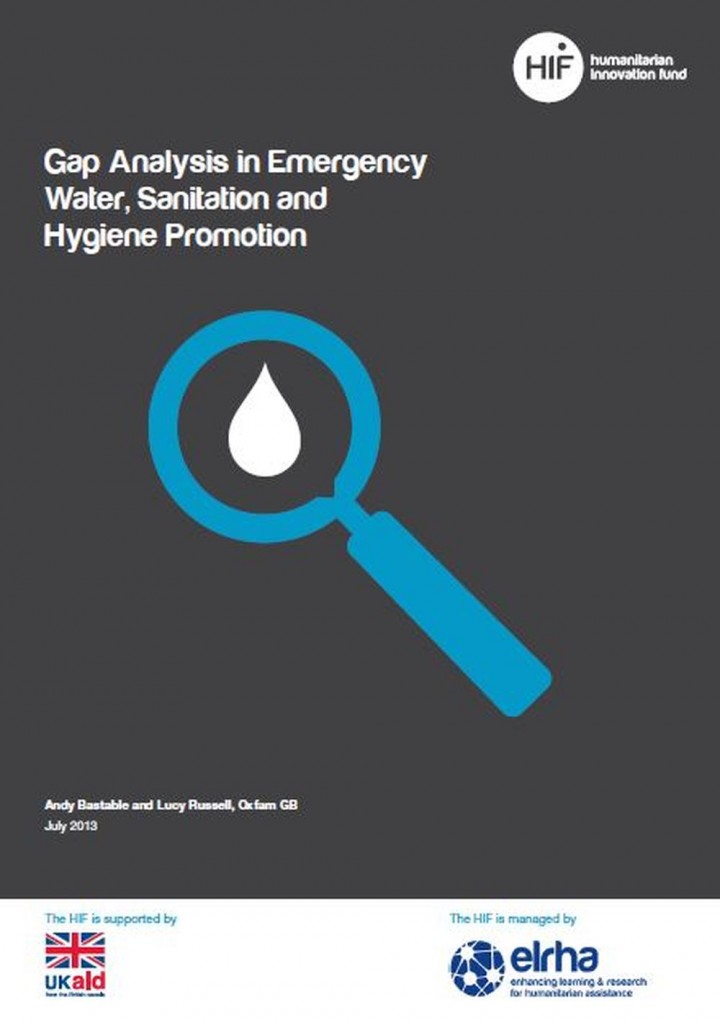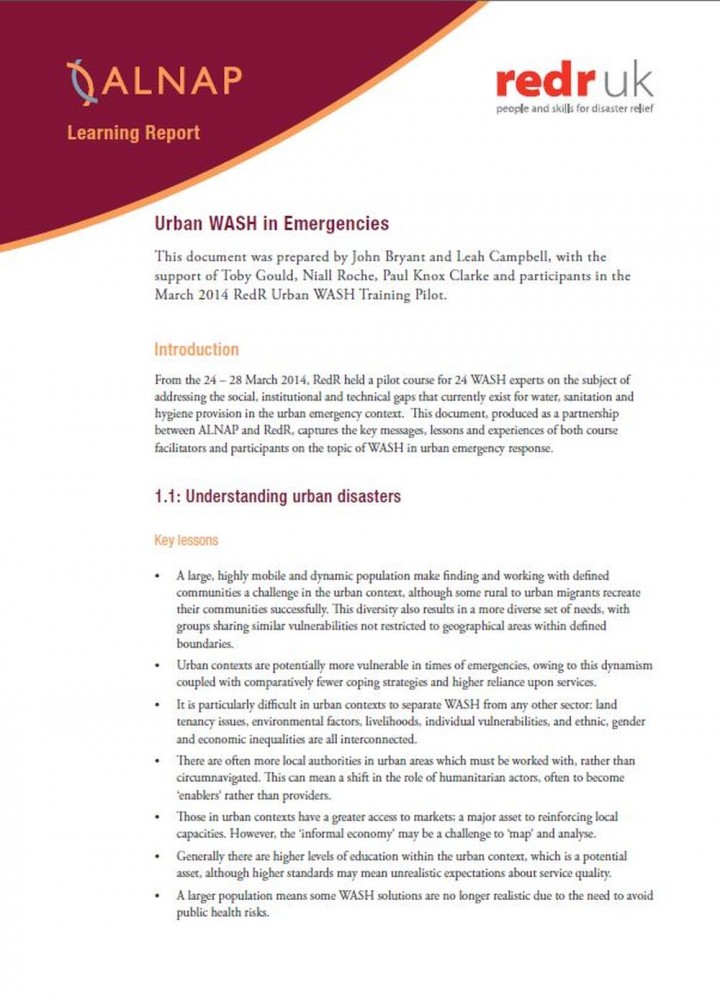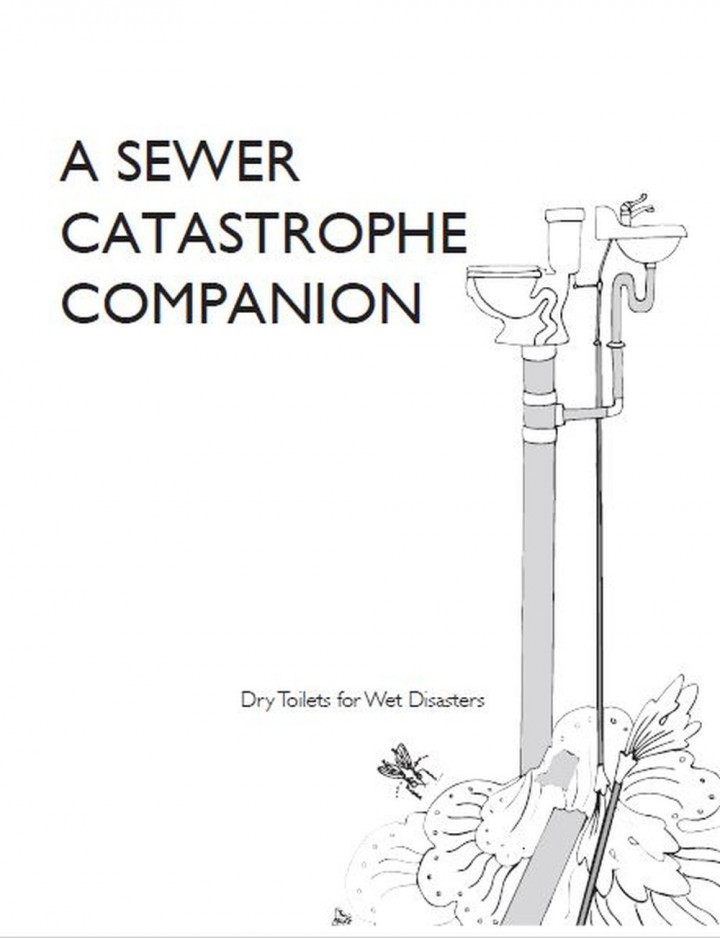Background
In emergency situations following natural or man-made disasters, access to safe water supply and sanitation is of crucial importance for the health of the affected population: People who are affected by disasters and are living in overcrowded relief camps or disaster areas can easily get infected by serious diseases as a result of lacking sanitation or unhygienic conditions.
In many cases, pit latrines are then built in a rush, even though those areas may be located in flood-prone areas or areas where the groundwater table is high and the soil is not suitable for the given population density.
These difficulties require appropriate planning, design, construction and management of sustainable sanitation in emergency and reconstruction situations.
Objectives
The SuSanA Working Group 8 on “Emergencies and Reconstruction Situations” has been started in 2011 with the objective to combine the knowledge from experts in the fields of sanitation with the knowledge from experts in the field of emergency response and reconstruction.
A first outcome of this group was a joint SuSanA factsheet on Sustainable Sanitation for Emergencies and Reconstruction Situations to compile and address current sector developments and challenges at that time, and look at gaps and solutions in the planning and implementation of more sustainable sanitation solutions for emergencies and reconstruction situations.
Another important milestone was the development of the Compendium of Sanitation Technologies in Emergencies – an exceptional collaborative effort of the German WASH Network, Eawag, SuSanA, the Global WASH Cluster and its partners and with contributions and thematic inputs from a multitude of international sanitation sector experts and organisations both from the humanitarian and development sphere. The SuSanA and its secretariat hosted by GIZ actively supported the development of the publication and is hosting the online platform of the Compendium. Throughout the development process the Working Group 8 acted as a continuous sounding board. The Emergency Sanitation Compendium Platform is a comprehensive online capacity development and decision support tool to come up with sanitation service chain solutions in emergency settings. It provides detailed information on key decision criteria for all tried and tested emergency sanitation technologies, information on cross-cutting issues and available case studies.
Activities
Although a lot of tools, resources and platforms like the Emergency Sanitation Compendium have been developed in recent years the Global WASH Cluster (GWC) Technical Working Group on Faecal Sludge Management (FSM TWiG) decided to go one step further and articulated the need for a meta platform on humanitarian sanitation with the aim to compile and structure all available emergency sanitation tools, resources and platforms including all the practical tools and information that are often hidden on individual expert laptops, in one single platform. It resulted in a project financially supported by the Bill and Melinda Gates Foundation and is currently being implemented by a project consortium consisting of BORDA, CAWST, Eawag, IHE Delft, Netherlands Red Cross and Solidarités International under the leadership of the German Toilet Organization.
The so-called Humanitarian Sanitation Hub – or Sani-Hub in short – aims at bringing together all available global knowledge on planning and implementing sanitation and faecal sludge management in emergencies and enables and guides humanitarian WASH practitioners with simple, quick and easy access to contextualised, relevant resources and tools – including a helpdesk for direct support – and attempts to continuously fill the knowledge gaps for improved humanitarian sanitation services. The SaniHub was launched in May 2023.
The objective of knowledge management is therefore currently “outsourced” to the SaniHub. This leads to a shift in the focus of the activities of the SuSanA-Working Group: It shall continue to work towards bringing together the different parties working on WASH in emergency contexts, make them heard in broader discussions on sustainable sanitation as a whole, and ensure the sanitation-in-emergency-perspective is brought in, when identifying trends and directions within the sector, e.g. during discussion on post 2030 goals and indicators.
Working Group Leads
